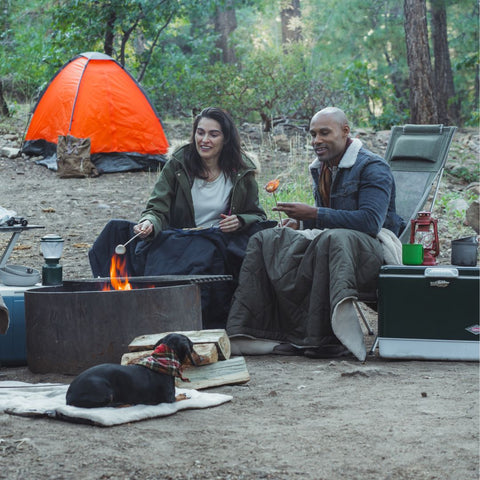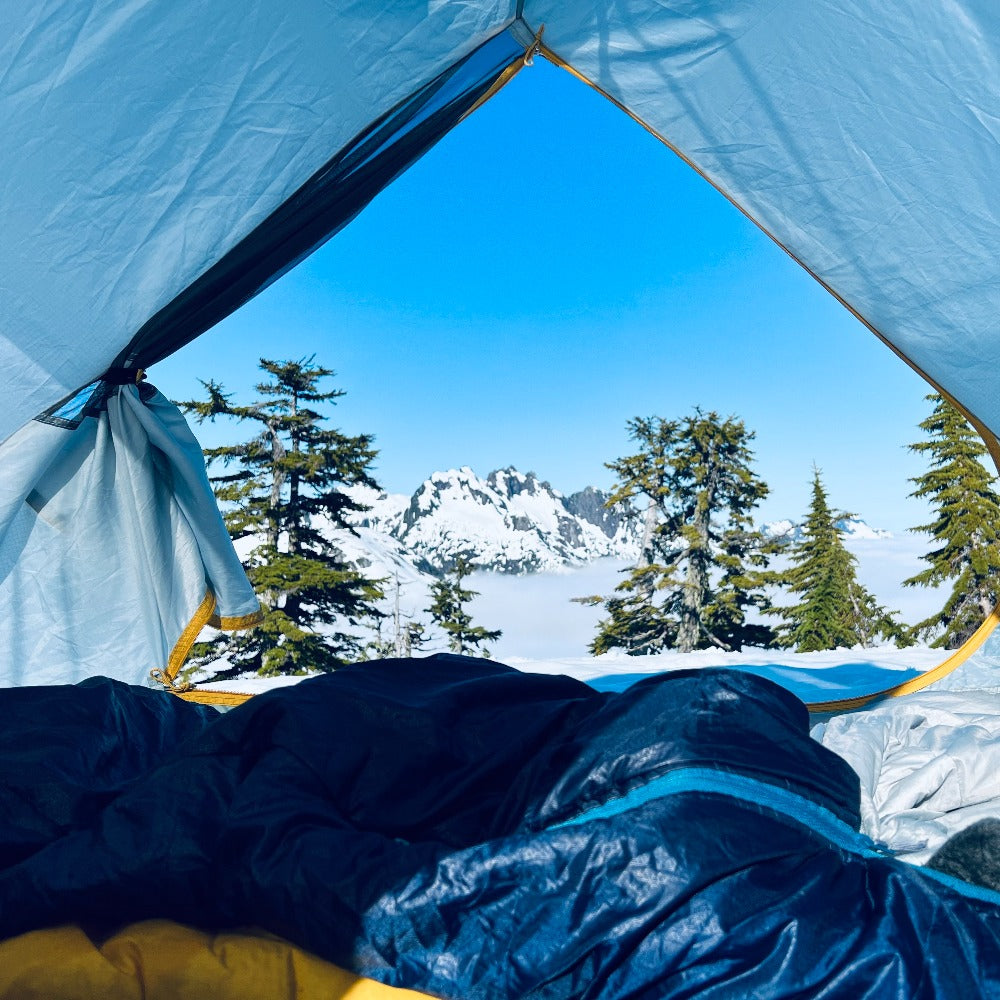Winter camping, with its pristine snowscapes and crisp, frosty air, can be a breathtaking experience for outdoor enthusiasts. However, facing the cold temperatures and potential challenges of winter camping requires careful planning and knowledge to ensure a safe and enjoyable adventure. Here are some essential tips to help you stay warm, comfortable, and secure during your winter camping expedition.
What’s the Charm of Winter Camping?
Winter camping holds a unique charm in its pristine snow-covered landscapes, offering solitude and adventure to nature lovers. The quiet beauty of snow-covered trees and starlit skies, cozy campfires, and the challenge of overcoming the cold create an unforgettable experience. It's a chance to find peace in the wilderness, bond with others, and discover the joy of simple pleasures like hot drinks in the cold, making it a cherished adventure for those seeking a deeper connection with nature.
How Do You Prepare for Winter Camping?
Choose the Right Location
Select a campsite that provides natural shelter from the wind, preferably close to trees or natural barriers. Avoid low-lying areas where cold air settles, and opt for higher ground if possible. Research the area beforehand to understand local weather patterns and potential hazards.
Invest in High-Quality Gear
Invest in a high-quality winter tent designed to withstand snow and wind. Make sure your sleeping bag can withstand sub-zero temperatures, and consider using a pad with a high r value to insulate the cold ground. Wear layers and choose clothes that absorb moisture to keep your body dry and warm. A portable heating blanket is also essential to prevent the risk of hypothermia when you are outdoors due to loss of power.

Stay Dry
Staying dry is crucial in winter camping. Moisture, whether from sweat or snow, can quickly lead to hypothermia. Pack waterproof clothing, extra socks, and gloves. Always change into dry clothes before getting into your sleeping bag, and remove any damp layers to keep warm.
Master the Art of Fire
Practice building a fire in various conditions before your camping trip. Bring waterproof matches, a firestarter, and enough firewood to last through the night. Learn how to create a sustainable fire that provides both warmth and light, and always follow Leave No Trace principles when gathering firewood.
Pack Nutritious, High-Energy Food
Winter camping requires extra energy to stay warm. Pack lightweight, high-energy food that is easy to prepare and doesn’t freeze, such as energy bars, nuts, and dried fruits. Carry a thermos with hot beverages to keep you warm from the inside.
Stay Hydrated
Dehydration can increase the risk of hypothermia. Drink plenty of warm fluids, avoiding caffeine and alcohol which can dehydrate you. Pack an insulated water bottle and consider using a water bladder that you can keep inside your clothing to prevent freezing.
Be Prepared for Emergencies
Carry a well-stocked first aid kit, a multi-tool, and a fully charged emergency communication device. Let someone know about your camping plans and expected return time. Familiarize yourself with the signs of hypothermia and frostbite, and know how to treat them in an emergency situation.
How to keep a tent warm in the winter?
Keeping a tent warm in winter is essential for a comfortable camping experience. Here are some effective tips to help you stay warm inside your tent:
Insulate the Ground
Use a thick, insulated sleeping pad, camping blanket or air mattress under your sleeping bag. The ground can sap your body heat, so having proper insulation beneath you is crucial.

Ventilation is Key
While it might seem counterintuitive, proper ventilation is crucial. Condensation can build up inside the tent, making it damp and chilly. Crack open the tent vents slightly to allow fresh air circulation without letting too much cold air in.
Use a Tent Heater (Safely)
Portable tent heaters designed for camping can provide warmth. Make sure the heater is safe for indoor use, properly ventilated, and placed away from flammable materials. Always follow the manufacturer's instructions.
Seal Tent Gaps
Seal any gaps or openings in your tent with weather-stripping or tape to prevent drafts. This helps in retaining the warmth inside the tent.
Warm Up Hot Water Bottles
Fill hot water bottles or heat packs with warm (not boiling) water and place them inside your sleeping bag. This provides localized warmth, especially for your feet, and can keep you comfortable throughout the night.
Stay Active Before Bed
Engage in light physical activities before bedtime to raise your body temperature. This helps you stay warmer when you settle down for the night.


